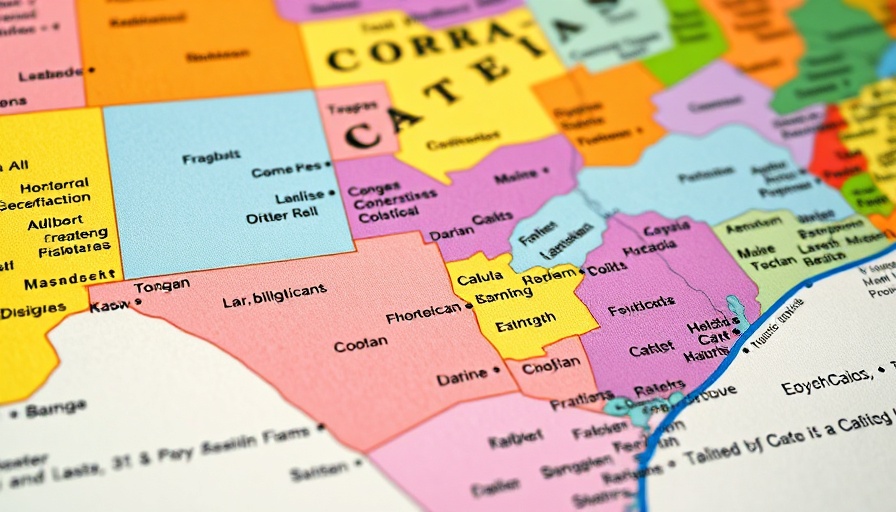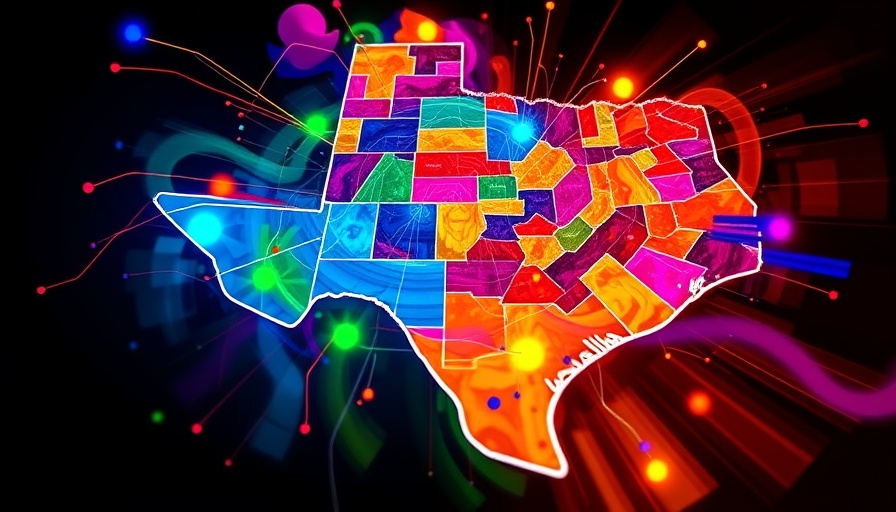
A Storm Brews Over Congressional Maps in Texas
As tensions flare across the Lone Star State, the Texas House Democrats have embarked on a strategic exodus, leaving the state in droves to protest a proposed congressional map set for a pivotal vote. This bold maneuver echoes past legislative showdowns in Texas, where Democrats have historically employed the tactic of fleeing to thwart Republican-led initiatives they deem unfavorable.
The Implications of Redistricting
Redistricting remains a hot-button issue in American politics, significantly impacting electoral outcomes. The proposed congressional map threatens to reshape districts to favor Republican candidates, a shift that could bias representation in Texas for the next decade. This maneuver may stir up fierce debates not only in Austin but across the nation, raising concerns about fairness in the electoral process.
Why This Matters: The Local Connection
For residents of Austin, the unfolding drama holds immediate repercussions. With a population that is increasingly diverse and politically active, any changes to congressional representation can affect local policies on education, healthcare, and infrastructure. Understanding the intricacies of this map—and the motivations behind the Democrats' swift departure—is crucial for Austinites who may find themselves at the mercy of new political realities.
What History Teaches Us
Historically, redistricting has been a battleground in Texas politics. Notable instances of walkouts occurred in 2003, when Democrats fled to New Mexico to block a Republican redistricting plan. This event sparked widespread media attention and discussions about the ethics of political maneuvering, illustrating the high stakes involved in mapping districts, which can ultimately decide party control in Congress.
Future Predictions: What Lies Ahead?
As this story continues to develop, experts anticipate that the fallout will run deep. If the proposed congressional map is approved, it may set a precedent for similar moves in other states, potentially igniting a wave of partisan warfare over representation throughout the country. Political analysts project that Democrats will rally even more grassroots support in response, especially as upcoming elections draw nearer.
The Voices of Austin: Community Perspectives
Residents express mixed feelings about the Democrats' departure. Many Austin locals view this as a necessary stand for equitable representation. "It's crucial that our voices are heard at the federal level," says one voter. However, others worry about the potential for increased partisan division: "At some point, we have to work together instead of running away from the issues at hand."
Solidarity in Action: Opportunities for Engagement
This situation presents an opportunity for civic engagement, where citizens can participate in discussions about redistricting and its implications. Activism around this topic is more critical than ever; local organizations are hosting town halls to inform and mobilize residents. Engaging in these conversations helps ensure community voices are not drowned out amidst political maneuvers.
Conclusion: Keeping Informed and Taking Action
As legislative sessions unfold, such actions remind us of the essential role each of us plays in the democratic process. Keeping abreast of local news and actively participating in civic engagement are critical to safeguarding our community’s interests. Stay informed about upcoming local events and discussions surrounding this redistricting issue, and encourage others to do the same. Let's ensure that all voices are heard in Austin and beyond!
 Add Element
Add Element  Add Row
Add Row 



Write A Comment